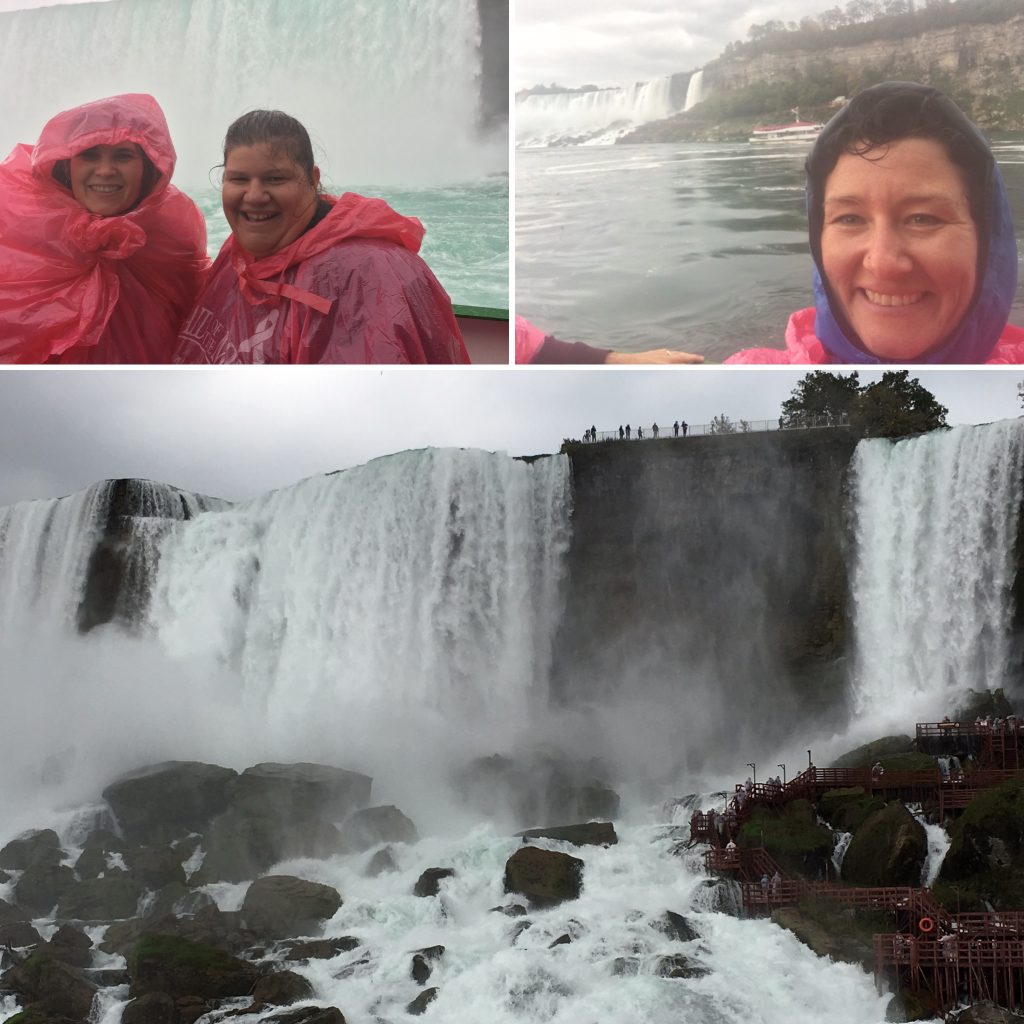It was fitting that this year’s Open Education conference took place a short stroll from the magnificent Niagara Falls, as a blast of information from the more than 350 presentations and endless conversations swept up the three BCcampus attendees, and their 850 fellow conventioneers, to a new level of understanding.
Post by BCcampus’ OpenEd team

Lauri Aesoph, Manager of Open Education, noticed a couple of trends at the conference. She witnessed colleagues presenting and having more conversations about the challenges of using OER and working in an open environment. In “The Merits of Keeping Closed: Profiles of faculty who purposefully chose not to adopt open textbooks,” Ph.D. candidate Jonathan Lashley pulled data from the Open Textbook Network’s post-workshop survey. Focussing on the 3% of faculty who stated they would not adopt an open textbook, Lashley conducted in-depth interviews and explored reasons for this choice. In another session, a panel from the University of Maryland (UMUC) presented research findings on “OER and Academic Integrity” and the role of open educational resources and why they are important in the “New Cheating Economy.”
Aesoph found that many institutions and regions have made significant advances in the use and integration of open educational resources and practices into their systems. During “Scaling Up OER Faculty Development from a Campus to a System,” the speakers described a 10-week training course–originated at Central Lakes Community College in Brainerd, Minnesota–that prepares faculty for using OER in the classroom and is now used across the state.
Senior Manager Amanda Coolidge was intrigued by the session title:
“Maintaining Momentum in a Mature OER Initiative.” It reminded her of how BCcampus is in a similar position and wondered what she could learn about continuing her work with B.C. institutions. This session from Tidewater Community College — the first U.S. school of its kind to create a Z-Degree in Business Administration, in 2011 — offered tips to other advanced initiatives such as making OER adoption simpler for faculty, recognizing individuals for their OER contributions, and seeking out not only faculty champions, but also institutional OER champions, for help.
Coolidge picked up on how open education is changing teaching and learning practices. During “OER as a Deeper Learning Initiative?: Faculty Perceptions of OER Adoption on Teaching and Learning,” she heard about Ohio State University’s research on the connection between OER and deeper student learning. In this study, 30 instructors from 24 disciplines redesigned courses based on adopted OER, with the goal to challenge students and ask they critically evaluate the content. Results showed that OER and the course built around it enhanced collaboration among students through group problem solving and students teaching one another. Faculty benefited too. When instructors had time and the incentive to redesign their course using OER, they were also able to reflect on their teaching practice and course outcomes, such as changing assessment strategies and creating activities that align with critical thinking and student collaboration.
On the second day of the conference, a blog post by Open Education Advisor Krista Lambert was published, entitled Access code costs continue to burden students. With this top of mind, Lambert was drawn to related topics at the conference. After attending Jess Mitchell’s keynote on the importance of considering who we exclude by the choices we make, she learned about an easy way to promote accessibility during “Supporting Students with Disabilities in Business Law using OER.” A majority of the speaker’s students with access issues were having their textbook read to them. These students were using tools that were readily (and freely) available on their computers. The presenter plans on providing students instructions about these tools in her syllabus.
Lambert was drawn to related discussions about access codes and the lack of a robust open source system for homework and other activities. Many colleagues expressed concern about privacy and there is a strong call by open advocates for transparency and honesty in user agreements and data use. There was talk about the portability of OER content and how it could be packaged and reused in different systems with different tools. One example was taking content and pairing it with an (as yet undeveloped) open homework system so that “learners could have a personalized learning experience.”
While we thought the Maid of the Mist boat tour of Niagara Falls was exciting, it was nothing compared to the upcoming wave of open education adventures heading our way.
Learn more:
- Access code costs continue to burden students
- BCcampus heads to OpenEd18
- BC Open Textbook Collection
- Open Access Week
Join us for an upcoming event:
-
Oct. 24, 2018 – Symposium 2018: Scholarly Teaching & Learning in Post-Secondary Education
-
Oct. 29 – Nov. 2, 2018 – Facilitating Learning Online (FLO) – MicroCourse: Experience and design a community building activity
-
Nov. 2, 2018 – Fall ETUG 2018
-
Nov. 7 – 8, 2018 – Liberating Structures Workshop 2018
-
Nov. 26 – 30, 2018 – FLO MicroCourse: Write your teaching philosophy statement
-
Apr. 17 – 18, 2019 – Save the date: Cascadia Open Education Summit
To stay informed with BCcampus by signing up for our newsletter, visiting our calendar and following @BCcampus on Twitter.
